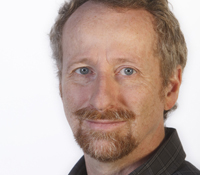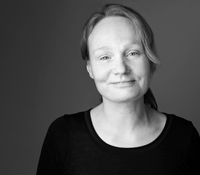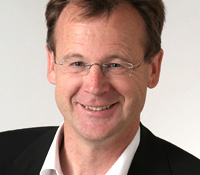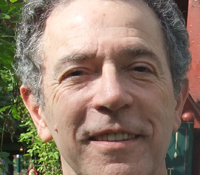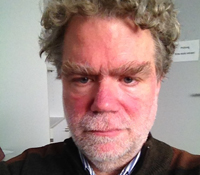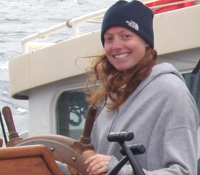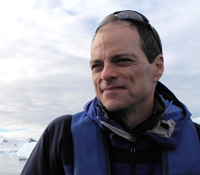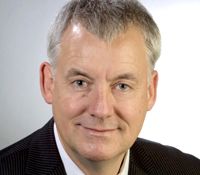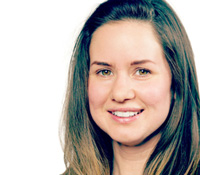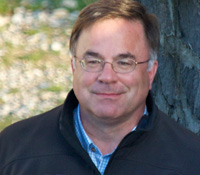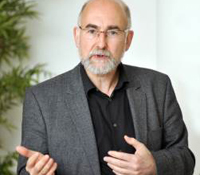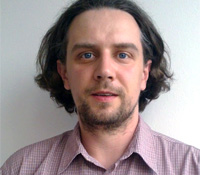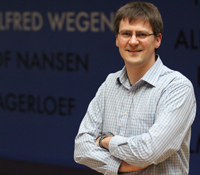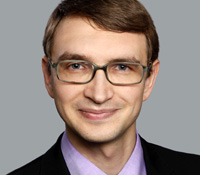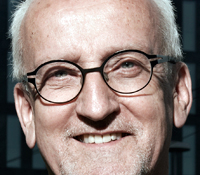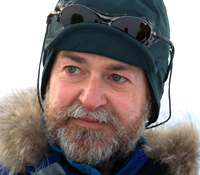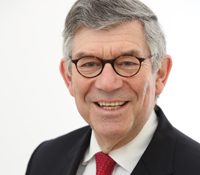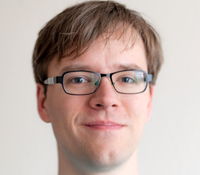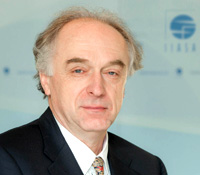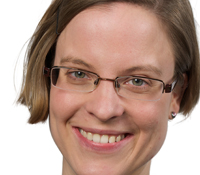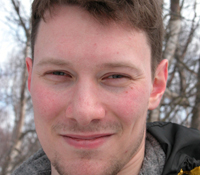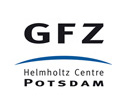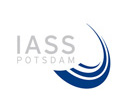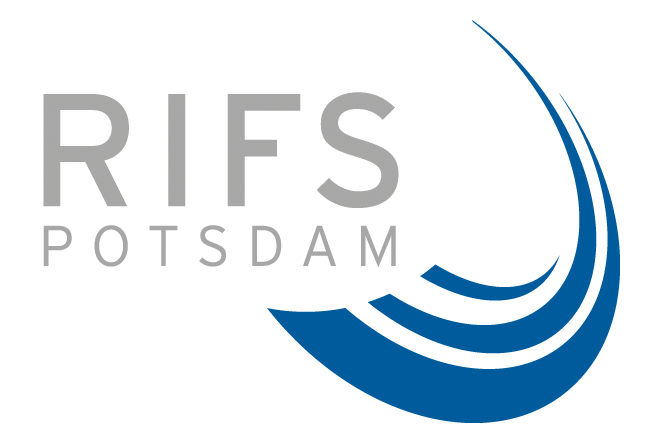Speakers
We present the list of speakers with a short bio in alphabetical order to give you an overview about their individual field of scientific expertise.
Please, note that this section will be updated regularly / Last update: 15.06.2014
Jeff A. Ardron
Julia Boike
Warner Brueckmann
Ilan Chabay
Bernard Coakley
Heather Coleman
John Crump
Bernhard Diekmann
Marianne Pascale Flynn
Bernard Funston
Rüdiger Gerdes
Andreas Groh
Guido Grosse
Alexander Gusev
Heinz Gutscher
Neil Hamilton
Fritz Holzwarth
Hans-Wolfgang Hubberten
Ralf Jaiser
Pavel Kabat
Kathrin Keil
Volker Klemann
Jan Kosmol
Hugues Lantuit
Axel Lauer
Karin Lochte
Birgit Lode
Nele Matz-Lück
Volker Mosbrugger
Dustin Neuneyer
Paul Overduin
Peter Prokosch
Volker Rachold
Irina Rogozhina
Ortwin Renn
Torsten Sachs
Julia Schmale
Bernd Uwe Schneider
Bernhard Steinberger
Renate Treffeisen
Ande Trosten
Sebastian Unger
Dirk Wagner
Jens Wickert
Dr. Jeff A. Ardron
Jeff A. Ardron is a Senior Fellow at the Institute for Advanced Studies in Sustainability (IASS), Potsdam, Germany. His current research is concerning global maritime governance and how institutions can evolve and adapt in this era dominated by human impacts and activities, the ‘anthropocene’. Central to this analysis is the varying degrees of institutional transparency and accountability, and how this affects governance effectiveness, social equity, and economic resilience. Having just finished an analysis of high seas fisheries (with Nichola Clark of Duke U.), the current focus is deep sea mining transparency. His previous work centred on marine planning and protected area design. He maintains his involvement in British Columbia, Canada (where he is from) as President of the Board for the Pacific Marine Analysis and Research Association (PacMARA), an organization he co-founded, that provides technical training and workshops internationally on marine planning and software tools. In addition to PacMARA, he is also active within the Global Ocean Biodiversity Initiative (GOBI) and the Deep Ocean Stewardship Initiative (DOSI). His maritime experience started locally, living and working in a small fishing village, later moving to the regional conservation sector, then national-level government and finally working within international conventions. He is a frequent guest lecturer, and has consulted widely, recently for projects in West Africa, Chile, Israel, Canada, and the UK.
Julia Boike
Julia Boike is a hydrologist working for more than 20 years in the Arctic at various locations in Siberia, Alaska, Svalbard and Canada. Her specific research interest is exploring the physical processes of the permafrost land surface and the exchange with the atmosphere. She enjoys working in these remote areas, especially field work on rubber boats on the numerous lakes, ponds and streams that shape these.
Warner Brueckmann
is a geologist with a background in metamorphic petrology and marine sciences. Warner has 25 years of experience in marine geotechnics, offshore oil and gas, and geohazard analysis, and has participated in more than 20 marine expeditions, including several drilling campaigns. He is the head of the “Energy and Resources” group at the Helmholtz Centre for Ocean Sciences in Kiel, Germany, which focuses on the development of innovative technologies for geochemical, geotechnical and geophysical characterization of hydrocarbon and ore deposits for exploration and monitoring purposes. He is regularly providing consulting services to companies in the energy and offshore mining industry.
Ilan Chabay
Ilan Chabay is Professor and Senior Fellow at the IASS and Alcatel/Lucent Fellow in Communications Research at the University of Stuttgart. His primary responsibility is in the cluster Sustainable Interactions with the Atmosphere (SIWA) of IASS, where he focuses on transdisciplinary research, including as co-leader of the project on Sustainable Modes of Arctic Resource-driven Transformations (SMART) and collaborator on a climate and air pollution project called ClimPol. He chairs an international 10-year (2012-2022) IHDP research alliance on Knowledge, Learning, and Societal Change, which will become associated with the evolving Future Earth program. As an important initiative of KLSC, which includes SMART and ClimPol, he is championing an approach to understanding and catalyzing individual and collective behavioral change through use of models/scenarios and narratives as analytical and affective components respectively of meaning making and decision making on complex system issues.
Bernard Coakley obtained his Phd in 1991 from Columbia University in New York City for work done at Lamont-Doherty Earth Observatory. His Phd thesis was a study of tectonic controls on basin-wide unconformities in foreland basins. Since 1993 his scientific work has largely been focused on the marine geology and geophysics of Arctic Ocean. He was deeply involved in the SCICEX program of unclassified science cruises to the Arctic Ocean on US Navy fast attack submarines (1993-1999) and is currently focused on acquiring more data on and around the Chukchi Borderland, developing Arctic Ocean scientific drilling projects and applying seafloor swath mapping to solve geologic problems related to ice sculpting of the seafloor off northern Alaska. He has also collected data for the eventual US submission on the extended continental shelf north of Alaska.
He holds the position of Professor at the University of Alaska Fairbanks, but this year he is on sabbatical at the Institut für Erd- und Umweltwissenschaften at the University of Potsdam.
Heather Coleman
Heather Coleman is the Science Advisor for PacMARA (Pacific Marine Analysis & Research Association), a charitable organization in Canada focused on informing conservation and resource use decisions. In this role, she provides scientific advice on marine spatial planning internationally and ecosystem-based management implementation in British Columbia. Heather leads development and delivery of training programs in systematic planning (primarily Marxan decision support software), facilitates workshops and meetings on various topics, researches best practices for sound integrated marine planning, and adds support to business planning and fundraising efforts for PacMARA. She has coordinated 30+ international technical and managerial trainings and workshops on Marxan use and good practices for governments, researchers, consultants, NGOs, and industry groups. Heather earned her PhD in marine ecology and MA in economics from the University of California, Santa Barbara.
John Crump
John’s work looks at the rapid changes taking place at the poles and the implications for the rest of the planet. Currently living in Ottawa, Canada, he is Senior Climate Change Advisor for the Norway-based GRID-Arendal Polar Centre. He focuses on climate change in the Arctic and Small Island Developing States and is co-director of the Many Strong Voices programme, among other things.
John’s academic background is in journalism, communications, history and political economy. He has a Bachelor of Journalism and a Master’s Degree in Canadian Studies (Northern Political Economy) from Carleton University in Ottawa, Canada.
He has worked for the Canadian Broadcasting Corporation, been Cabinet Communications Advisor in the Yukon Premier’s office, done policy and research for the Royal Commission on Aboriginal Peoples, and was Government Relations Manager for the Nunavut Planning Commission. He was also Executive Director of the Canadian Arctic Resources Committee (CARC) and Executive Secretary of the Arctic Council Indigenous Peoples’ Secretariat in Copenhagen, Denmark.
John has taught graduate and undergraduate courses in journalism, public administration and geography at Yukon College in Whitehorse, Carleton University and the University of Trier in Germany.
Bernhard Diekmann
Bernhard Diekmann is senior scientist and deputy head of the Periglacial Research Section at the Alfred Wegener Institute, Helmholtz Centre for Polar and Marine Research (AWI) in Potsdam. In addition to scientific research in permafrost regions, he is responsible for public outreach and the representation of the AWI in regional networks. He is adjunct Professor for Quaternary Geology at Potsdam University, Institute of Earth and Environmental Science, and has a long-lasting research expertise on palaeoclimatic topics. Latest projects dealt with late Pleistocene and Holocene environmental changes in Siberia (AWI, DFG), Kamchatka (BMBF), the Tibetan Plateau (DFG), and the Antarctic Ocean (DFG).
Marianne Pascale Flynn
Marianne Pascale Flynn is a Geoscientist at the Institute for Advanced Sustainability Studies (IASS) and part of the Role and Potential of Unconventional Gas research group. Prior to joining the IASS, she worked for Pathfinder Energy for five years on projects including conventional oil and gas, shale gas and coal bed methane exploration as well as on geothermal drilling projects worldwide. Ms Flynn’s research at the IASS encompasses all aspects of the shale gas debate but currently focuses on environmental and technological developments. She participated in the United States Department of State International Visitor Leadership Program on ‘Shale Gas and Oil in the US’ in March of this year. She holds a BSc. in Earth Sciences from the University of Glasgow (2006) and an MSc. in Micropaleontology from University College London (2008).
Bernard Funston
Mr. Funston was born in Fort Smith, Northwest Territories. He is a constitutional lawyer and a member in good standing of the Law Societies of Northwest Territories and Alberta. He holds degrees from Trent University, the University of Cambridge (King’s College), and the University of Alberta.
He has extensive experience on a range of matters pertaining to the Canadian North and the northern circumpolar region, including systems of governance, international and intergovernmental relations, Aboriginal land claims and self-government processes, resource development issues, scientific research and cooperation, and a range of fields relating to economic and community development. Read more →
Dr. Rüdiger Gerdes
Rüdiger Gerdes was born 1957 in Wilhelmshaven. Starting in 1974, he studied Physical Oceanography at the University of Kiel and finished his studies in 1988 with a doctorate about a topic in numerical mathematics relevant for ocean-science models. He spent two years as a postdoc at NOAA‘s Geophysical Fluid Dynamics Laboratory at Princeton University, New Jersey.
Since1991 he works as a senior scientist at the Alfred-Wegener Institute (AWI) for Polar and Marine Research, in Bremerhaven. In 2006 he became Professor of Oceanography at Jacobs University Bremen. Since 2009 he is Head of the Sea Ice Physics Department at AWI.
Andreas Groh
studied geodesy at TU Dresden and graduated in 2006. As a project scientist at TU Dresden he worked on the determination of sea-level changes from tide-gauge observations, ice-mass changes in Greenland and Antarctica from GRACE gravity field data as well as crustal deformation from modelling and GNSS observations. In 2014 he submitted his dissertation about the inference of ice-induced mass signals from combined geodetic data sets. Andreas participated in several field campaigns both in Greenland and Antarctica. In 2014 he joined GFZ and started working in a project dedicated to the GRACE Follow-on mission.
Guido Grosse
Guido Grosse received a Dr. rer. nat. in Geology from the University of Potsdam / AWI Helmholtz Centre for Polar and Marine Research in 2005. He was an IPY Postdoc at the Geophysical Institute, University of Alaska Fairbanks, from 2006–09, and in 2009 became a Research Assistant Professor there. Since 2013 he leads the ERC Starting Grant project PETA-CARB (Rapid Permafrost Thaw in a Warming Arctic and Impacts on the Soil Organic Carbon Pool) at AWI Potsdam. His research focuses on the study of climate change impacts in Arctic permafrost environments by using remote sensing, spatial information systems, and extensive field work. He participated in more than 30 field campaigns in Siberia and Alaska and has authored or co-authored more than 60 peer-reviewed journal articles.
Alexander Gusev
is a Project scientist at the institute for Advanced Sustainability Studies (IASS). He used to work before as a research fellow at the German Institute for International and Security Affairs (SWP). His research interests focus on the economic and geopolitical aspects of shale gas revolution and on EU-Russia energy relations.
Prof. Heinz Gutscher
Heinz Gutscher is Professor Emeritus of Social Psychology at the University of Zurich (UZH). His interests cover many topics like form, functions and mechanisms of social influence, trust and confidence, social psychological aspects of sustainability issues, risk perception and risk communication, change management, large-scale social interventions / campaigns, application of social psychological know-how in the fields of energy, mobility, consumption and new technologies. Since 2010 he serves as president of the Swiss Academy of Humanities and Social Sciences (SAHS/SAGW). He also acts as chair of ProClim – the Swiss Forum for Climate and Global Change of the Swiss Academy of Sciences (SCNAT). Since 2013 he has been appointed as a member of the scientific steering committees of Future Earth and the Swiss Biodiversity Forum, SCNAT. His aim is to make social sciences matter and to have impact within the topics relevant to the human dimension of global change.
Dr. Neil Hamilton
Neil Hamilton is Senior Political Advisor (Polar) with Greenpeace International. He was formerly the
CEO of Earthwatch (Australasia) and Associate Professor of Politics and International Relations at the Australian National University, and led WWF International’s Arctic Program from 2007 until 2011.
A geographer by training ( Ph.D. University of Sydney in coastal geomorphology, and subsequent postgraduate training in strategic studies), Neil’s career has focussed on understanding global environmental change, combining research, policy analysis, capacity building and advocacy with strategic program development.
Neil’s extensive international experience has included posts in Washington DC, Stockholm, Oslo, and Bonn as well as his native Australia. He previously held senior advisory positions at the Australian National University, and with the secretariats of the International Human Dimensions Programme on Global Environmental Change, and the International Geosphere / Biosphere Programme. Earlier in his career Neil established the Cooperative Research Centre for Greenhouse Accounting and the Australian Centre for Regulatory Economics, was Foundation Research Fellow at the Institute for Sustainable Futures at the University of Technology, Sydney, and was part of a ground breaking team modelling possible futures for Australia at CSIRO.
Dr. Fritz Holzwarth
Fritz Holzwarth was appointed Deputy Director General for Water-Management in the German Federal Ministry for the Environment, Nature Conservation and Nuclear Safety in 1991 until 2014. His professional responsibilities, are inter alia Head of the German Delegation, Baltic Marine Environment Commission (HELCOM), Head of the German Delegation for the Protection of the Marine Environment of the North-East Atlantic (OSPAR), Head of the German Delegation for International Commission for the Protection of the Danube River (ICPDR), President in 2003 and President of the International Commission for the Protection of the Rhine (ICPR) (2004-2007), President of the International Commission for the Protection of the River Elbe (2008-2010). He is a Member of the Board of Advice of the European Water Partnership, of the External Advisory Group of WATCH (Water and Global Change), of the Board of Advice of the Institute for Technology and Resources Management in the Tropics and Subtropics, Cologne University of Applied Sciences, of the Supervisory Board of the Helmholtz-Center Geesthacht, (Member of the Helmholtz Association), Member of the Kuratorium of the Fraunhofer Institute for Interfacial Engineering and Biotechnology. Member of the International Steering Committee of Great Rivers Partnership (GRP).
Mr. Holzwarth has been actively involved in transboundary cooperation in international river basins. Together with the World Bank he was one of the initiators of the “Petersberg Process on Transboundary Water Management”, a global initiative. In his position as German Water Director he has been actively involved in developing EU-Directives such as the Water Framework Directives, the Marine Strategy Directive and other water related regulations. Furthermore he jointly initiated with EU-Commission and the Joint Research Centre the discussion process on Climate Change and the European Water Dimension and was Chair of the Conference under the German EU-Presidency “Time to Adapt – Climate Change and the European Water Dimension Vulnerability – Impacts – Adaptation” in February 2007. He also was part of the discussion process on ”Marine and Coastal Dimension of Climate Change in Europe”.
Fritz Holzwarth studied Economics, Law and Political Science at the University of Freiburg/Breisgau and holds a Diploma (1977) and Ph. D. (1984) in Economics and a Diploma in Business Administration (1973) from the College of Economics, Pforzheim.
Hans-Wolfgang Hubberten
Hans-Wolfgang Hubberten graduated with the M.Sc in mineralogy (Diplom-Mineraloge) at the University of Tuebingen, Germany and with the research doctorate in Sciences (Dr.rer.nat.) at the University of Karlsruhe, in 1977, followed by a faculty position as research scientist at the University of Karlsruhe from 1977 to 1982. He was appointed as Professor of Mineralogy, at the Earth Science Faculty at the University of Nuevo Leon, Mexico, from 1982 to 1986. In 1984, Hubberten attained the Habilitation as Dr. habil. at the University of Karlsruhe. From 1986 to 1991 he was appointed a senior scientist at AWI Bremerhaven. Since 1992 he is Professor for Isotope Geology at the Potsdam University and head of the AWI Research Unit Potsdam with the Section of Periglacial Research. He built up a permafrost research team at AWI Potsdam, which is today held in internationally high esteem. Hubberten participated in more than 20 expeditions into the Arctic and Antarctic and contributed with his research papers to a better understanding of the processes in permafrost soils and in marine gas hydrates. Hubberten was appointed president of the International Permafrost Association (IPA) from 2008 to 2012. He is a Member of the American Geophysical Union, the German Mineralogical Society, the European Geological Union, the German Society of Polar Research, the Russian Academy of Natural Sciences, and the Academy of Sciences of the Republic of Sakha (Yakutia).
Ralf Jaiser
Ralf Jaiser studied physics in Potsdam. He graduated in physics of the atmosphere in 2010 and started his PhD thesis about the three-dimensional diagnostics of tropospheric and stratospheric large-scale circulation at the Alfred Wegener Institute. In 2013 he received his PhD and is now continuing his work as a Post-doc.
A main focus of his studies is the interaction between Arctic and mid-latitude climate variability. The Arctic sea ice decline has not only the potential to change Arctic atmospheric conditions, but also impacts the large-scale circulation and thus changes weather conditions in remote areas.
Professor Dr. Pavel Kabat
Director and Chief Executive Officer of the International Institute for Applied Systems Analysis (IIASA), is also Professor of Earth System Science at Wageningen University in the Netherlands. Professor Kabat has over 25 years experience leading interdisciplinary and international research teams investigating global environmental change, with focus on climate hydrology and water cycles. He is author and co-author of over 200 refereed publications including 9 books and co-editor of six special issues of peer reviewed international journals. Between 1994 and 2010, Professor Kabat has been chairing several Scientific Steering Committees of the major global environmental change programs, dealing with both the physical and the biogeochemical aspects of the earth system.
He is a co-recipient of the 2007 Nobel Peace Prize as one of the Lead Authors of the IPCC, co-recipient of The Zayed International Prize for the Environment (2006) as one of the authors of the Millennium Ecosystem Assessment, and a recipient of the Dahlem Foundation International Prize (Berlin, 1998), and NASA Goddard Space Flight Centre Prize (Maryland, USA 1997).
http://www.iiasa.ac.at/web/home/about/leadership/director/Professor-Dr.-Pavel-Kabat–Director.en.html
Kathrin Keil
Kathrin has been a Project Scientist at the IASS in the research cluster “Sustainable Interactions with the Atmosphere (SIWA)” since September 2013. She is predominantly working on the SMART (Sustainable Modes of Arctic Resource-driven Transformations) project, which focuses on stakeholder engagement and governance challenges in the resource-driven transformations in the Arctic and the feedback effects between Arctic and non-Arctic regions. Kathrin received her Ph.D. from the Freie Universität Berlin in 2013. In her dissertation she researched the international politics of the Arctic, with a focus on international regimes and institutions in the areas of energy, shipping and fishing. She is also active within The Arctic Institute (www.thearcticinstitute.org) where she regularly writes about and comments on current Arctic developments. Further, Kathrin has participated in meetings of the Arctic Council Task Force on Black Carbon and Methane as part of the official German observer delegation to the Arctic Council.
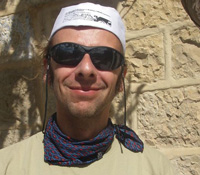
Volker Klemann
Volker Klemann leads the working group ‘Ice and Solid-Earth Dynamics’ of the Section `Earth System Modelling’ at the Helmholtz Centre Potsdam – GFZ German Research Centre for Geosciences, Germany.
He studied geophysics in Kiel and obtained his doctoral degree from the Westfälische Wilhelms-Universität Münster, Germany. His research focusses on numerical modelling and interpretation of solid-earth deformations and sea-level variations in view of climate change through the last glacial cycle to present day.
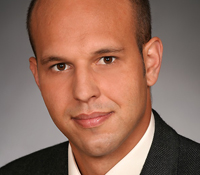
Dr. Jan Kosmol
Jan Kosmol is Research Officer at the German Federal Environment Agency (UBA). Since 2009, he has been working at UBA in the subject area of resource conservation, resource efficiency and sustainable raw materials management. Jan has been intensively involved in the development and advancement of the German Resource Efficiency Program (ProgRess). In his work at UBA, Jan focuses on the environmental impacts of mining activities, resource scarcity, the criticality of raw materials and the recycling of precious and special metals.
Jan holds a degree (Dipl.-Ing.) in Environmental Engineering from the Technical University of Berlin.
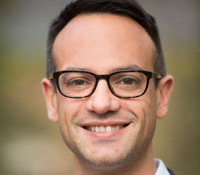
Prof. Hugues Lantuit
Prof. Lantuit is the leader of the coastal dynamics research group at the Alfred Wegener Institute Helmholtz Centre for Polar and Marine Research in Potsdam, Germany.
He studies the erosion of permafrost coasts in the Arctic, their reaction to climate change and its implication for the Earth Climate System.
Hugues Lantuit is the founder of the Permafrost Young Researchers Network (PYRN), the co-founder of the Association of Polar Early Career Scientists (APECS) and is now a member of the Executive Committee of the International Permafrost Association (IPA).
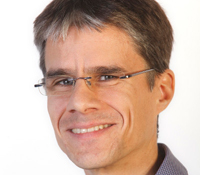
Axel Lauer
Axel Lauer studied meteorology in Munich and did his PhD on aerosols at the German Aerospace Center (DLR) Oberpfaffenhofen. Before joining the IASS, Axel spent five years as a researcher at the International Pacific Research Center in Honolulu studying clouds, aerosols and their interactions. At the IASS he is now heading a small modeling group investigating the impact of black carbon and of other aerosols on air quality and climate in different regions of the world.
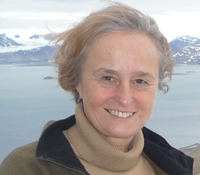
Prof. Dr. Karin Lochte
Prof. Dr. Karin Lochte is director of the Alfred Wegener Institute for Polar and Marine Research in the Helmholtz Association, Bremerhaven, Germany, and Professor at the University Bremen.
She studied in Hannover and the University of Wales and worked as a scientist at the GEOMAR in Kiel, at the Alfred-Wegner-Institute and at the Institue for Baltic Sea Research Warnemünde. Her main research area is marine microbial ecology and microbial carbon cycle.
She is member of a number of many national and international scientific committees.
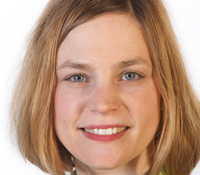
Birgit Lode
A German lawyer by training, Birgit Lode has been doing research on questions pertaining to International Environmental and Economic Law for the past six years. After the completion of her PhD thesis and a position as a Project Scientist at the German think tank SWP (German Institute for International and Security Affairs) in Berlin, since fall 2012 she works as Postdoctoral Researcher at the Institute for Advanced Sustainability Studies (IASS) in Potsdam, Germany, where she directs the project ‘Environmental Law and Institutions for Air and Sea’ (ELIAS) and serves as IASS Focal Point for the Climate and Clean Air Coalition to Reduce Short-Lived Climate Pollutants (CCAC). In addition, Birgit Lode regularly teaches courses and seminars at the Law Faculty of the University of Potsdam and the School of International Studies of the Technical University Dresden. Her current research focuses on International Environmental Law, in particular its changing nature, the design of a successor to the Kyoto Protocol to the UNFCCC, the newly established CCAC, as well as present and future challenges in the fields Artic Law and Governance.
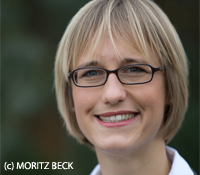
Prof. Nele Matz-Lück
Nele Matz-Lück is Professor of the Law of the Sea and co-director of the Walther Schücking Institute for International Law at the University of Kiel since 2011. She is a member of the Cluster of Excellency “Future Ocean”. Since January 2014 she is also adjunct professor at the K.G. Jebsen Centre on the Law of the Sea at the University of Tromsø. Current research and publications cover different aspects of ocean governance. Issues of interest include legal regulations concerning the exploitation of marine resources and the protection of the marine environment as well as questions concerning the international law applicable to the Arctic with regard to boundaries, resources, shipping and cooperation.
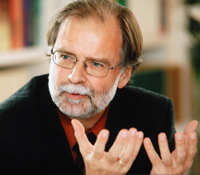
Dr. Dr. h.c. Volker Mosbrugger
Since 2005, Volker Mosbrugger is Director General of the ‚Senckenberg Gesellschaft für Naturforschung’ which today runs six research institutes in Germany. He also holds the Chair in History Geology and Palaeontology at the Goethe University Frankfurt. His fields of expertise are the evolution of plant form and function, the evolution of terrestrial ecosystems, Cenozoic climate dynamics and in general the biodiversity – climate interaction.

Dustin Neuneyer
Dustin joined PRI Principles for Responsible Investment in January 2014 as PRI’s new part time European Network Manager. He is responsible for engaging with and supporting European signatories in their responsible investment practice and implementation, and fostering the development of the PRI European Network. He brings with him more than 12 years of experience in responsible investment and ESG (environmental, social, governance) integration gained through his positions as Director at corporate and investment bank WestLB and Senior Advisor to think tank and lobby NGO Germanwatch. Dustin developed and implemented first of its kind ESG approaches on business activities related to coal-fired power generation and on offshore oil drilling and production including the Arctic as well as on stakeholder dialogues. He holds a Masters of Art degree in Political Science, German Philology and Art History from the University of Cologne in Germany.
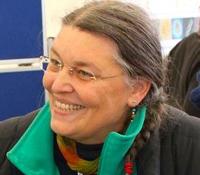
Eva-Maria Nöthig
Eva-Maria Nöthig received her PhD in Biological Oceanography (Antarctic plankton ecology) from the University Kiel, Germany, early in 1988.
After some post-doctoral years at Alfred Wegener Institute Helmholtz Centre for Polar and Marine Research in Bremerhaven (AWI, Germany), including stays abroad at the University of California at Santa Cruz (USA), and University of Oslo (NORWAY) she continued at AWI with basic research on plankton ecology and vertical particle flux in the Arctic Ocean in 1992.
Since 2000 she is involved in time-series measurements in the AWI observatory ‘HAUSGARTEN’ in the Framstrait to investigate global change on the Arctic pelagic ecosystem.
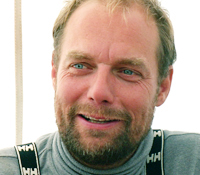
Dr. Paul Overduin
Dr. Paul Overduin is a senior scientist at the Alfred Wegener Institute (AWI) in Potsdam, Germany, has worked in Alaska, the Canadian High Arctic, Siberia and on Spitsbergen. How shifting climate is changing conditions for permafrost along the arctic coast and beneath the arctic shelf seas, and how permafrost can affect climate, are the questions that drive his research. Dr. Overduin currently leads a Russian-German research group combining modeling, field research and remote sensing expertise to assess the sensitivity of the coastal zone in the Kara and Laptev Seas to change. He is a contributing author to the IPCC 5th Assessment Report and a member of the Arctic Resilience Report Assessment Integration Team, a current Arctic Council project.
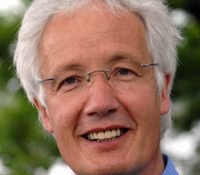
Dr. Peter Prokosch
Managing Director, GRID-Arendal (www.grida.no)
Dr. Peter Prokosch (born: 1952) is the Managing Director of GRID-Arendal, A Centre Collaborating with UNEP, in Norway. Before joining GRID-Arendal in 2006, he served as CEO of WWF Germany in Frankfurt. Between 1992 and 2001 he developed and led the Arctic Programme of WWF International from Oslo, Norway. 1984-1992: Head of WWF Wadden Sea project in Schleswig-Holstein. 1978 – 1984 various contracts with the University of Kiel, the Environment Agency and the Bird-protection Station in Schleswig-Holstein, related to ecological research in the Wadden Sea. Dr. Prokosch studied biology and marine sciences in Bonn and Kiel and wrote his PhD thesis on the ecology of arctic shore birds. Some of his “footprints” engaging in conservation are related to the establishments of national parks in the Wadden Sea and on Svalbard as well as nature reserves in Siberia. For his involvement in the establishment of the “Great Arctic Reserve” (Zapovednik) in Northern Taimyr he shared the Green Leaf Award with WWF-Russia.
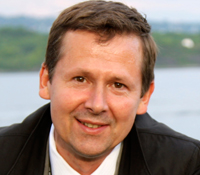
Dr. Volker Rachold
Volker Rachold is the Executive Secretary of the International Arctic Science Committee – from 2006 to 2008 based in Stockholm (Sweden) and since 2009 in Potsdam (Germany). In this function, he heads the IASC Secretariat which is responsible for the daily operations of IASC. Dr. Rachold graduated as a geochemist from Göttingen University, where he also obtained his Ph.D. in 1994. During the following 12 years, he worked for the Alfred Wegener Institute in Potsdam and Bremerhaven. In 2002, he received his habilitation postdoctoral lecturing qualification from the University of Potsdam. His research focused on land-ocean interactions in the Siberian Arctic and he led several land- and ship-based Russian-German expeditions. He is author and editor of numerous scientific papers and serves as a reviewer for scientific journals and funding agencies. He is a member of various high-level international committees and coordinates multidisciplinary research activities and international conferences.
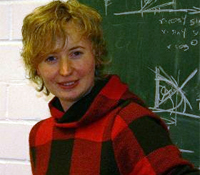
Dr. Irina Rogozhina
Dr. Irina Rogozhina is research associate at the German Research Centre for Geosciences in Potsdam. She is a founder and coordinator of the multinational research initiative IceGeoHeat, bringing together experts in glaciology, climatology, geology, geophysics, geodynamics, plate tectonics, geothermics, geomorphology, seismology, geodesy, and applied mathematics from twelve countries around the world. This collaborative research aims to understand the interactions between different subsystems of the planet Earth, with the main focus on the evolution of the Greenland and Antarctic ice sheets. From a cryospheric point of view, it creates a bridge between the observation, interpretation and modelling of the present-day and palaeo surface processes, global plate tectonics and mantle dynamics.
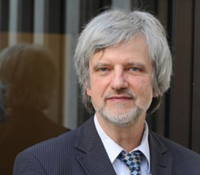
Dr. Ortwin Renn
Ortwin Renn serves as full professor for Environmental Sociology and Technology Assessment and as Dean of the Economic and Social Science Department at the University of Stuttgart (Germany). He directs the Stuttgart Research Center for Interdisciplinary Risk and Innovation Studies at the University of Stuttgart (ZIRIUS) and the non-profit company DIALOGIK, a research institute for the investigation of communication and participation processes in environmental policy making. Renn also serves as Adjunct Professor for “Integrated Risk Analysis” at Stavanger University (Norway) and as Affiliate Professor for “Risk Governance” at Beijing Normal University. Together with Armin Grunwald he co-directs the German Helmholtz-Alliance: “Future infrastructures for meeting energy demands. Towards sustainability and social compatibility“.
Ortwin Renn has a doctoral degree in social psychology from the University of Cologne. His career included teaching and research positions at the Juelich Nuclear Research Center, Clark University (Worcester, USA), the Swiss Institute of Technology (Zuerich) and the Center of Technology Assessment (Stuttgart). Among others he is a member of the Scientific Advisory Board of EU President Barroso, the Scientific and Technical Council of the International Risk Governance Council (IRGC) in Lausanne, the National Academy of Disaster Reduction and Emergency Management of the People’s Republic of China and several national and international Academies of Science. In 2012 he was elected president of the International Society for Risk Analysis (SRA).
His honours include an honorary doctorate from the Swiss Institute of Technology (ETH Zurich), an honorary affiliate professorship at the Technical University Munich, the “Distinguished Achievement Award” of the Society for Risk Analysis (SRA) and several best publication awards. In 2012 the German Federal Government awarded him the National Cross of Merit Order in recognition of his outstanding academic performance. Renn is primarily interested in risk governance, political participation as well as technical and social change towards sustainability. Renn has published more than 30 books and 250 articles, most prominently the monograph “Risk Governance” (Earthscan: London 2008).
Torsten Sachs
Torsten Sachs leads the Helmholtz Young Investigators Group TEAM (Trace Gas Exchange in the Earth-Atmosphere System on Multiple Scales) at the GFZ German Research Centre for Geosciences in Potsdam, Germany.
He studies land-atmosphere interactions both in degraded and rewetted NE German peatlands and in Arctic permafrost regions, focusing on carbon dioxide and methane emissions and the role those areas play in the climate system.”
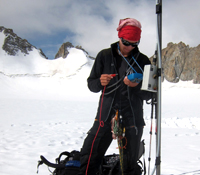
Julia Schmale
Julia Schmale is a project scientist at the IASS working at the science-policy interface for integrated strategies to air pollution and climate change mitigation. She did her PhD at the Max Planck Institute for Chemistry on long-range air pollutants transport to the Arctic by conducting measurements on research aircraft. Julia also spent three months on a sub-Antarctic research station. In addition to her current work that is mostly focused on stakeholder engagement, she investigates long-range pollutant transport to the high altitude glaciers in Central Asia by taking snow sample.
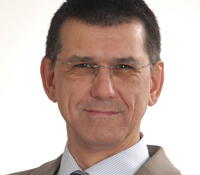
Bernd Uwe Schneider
Bernd Uwe Schneider is Head of Staff of the Scientific Executive Board at the Helmholtz Centre Potsdam – GFZ German Research Centre for Geosciences, the National Lab for Geosciences in Germany. He is coordinating the scientific input of GFZ to the research field on energy of the Helmholtz Association with regard to deep geothermal energy, underground energy storage, and underground storage of radioactive disposal. He is Lead Science Coordinator on behalf of the Helmholtz Association for the Helmholtz Alberta Research Initiative (HAI) and principal investigator for the HAI project on “Land reclamation and landscape development”. He holds an adjunct professorship at the University of Alberta. His area of expertise is on renewable energy production and alternative landuse systems, mine site reclamation, carbon storage, forest ecology and soil biology with special emphasis on soil-root-interactions. Uwe Schneider has played a major role in the establishment of the Institute for Advanced Sustainability Studies (IASS) in Potsdam.
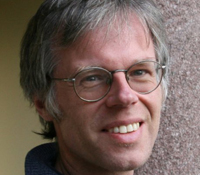
Bernhard Steinberger
Bernhard Steinberger obtained his diploma in geophysics in 1990 at Munich University, and a Ph.D. in geophysics at Harvard University in 1996. After that, he worked as researcher in various institutions before joining GFZ in 2009. He also holds a Professor II position at the University of Oslo. His research is about the dynamics of the Earth mantle, and how it relates to tectonic plate motions. Through various collaborations he aims to compare his numerical model predictions to observations.
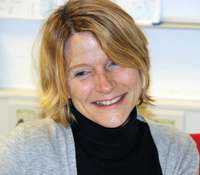
Renate Treffeisen
Renate Treffeisen is an experienced scientist and has been working since her diploma thesis in research revolving around the analysis of atmospheric processes. She started her scientific work as an assistant at the Technical University of Berlin, Germany. Then she has worked on different projects and has acquired a diversified knowledge in atmospheric research with a focus on tropospheric aerosols in the Arctic region. Since 2008 she lead the regional climate office for polar regions and sea level rise hosted by Alfred Wegener Institute, Helmholtz Centre for Polar and Marine Research. The established climate office facilitates and enhances the collection, dissemination, and use of valuable information from the institute’s many climate-related polar research topics for the benefit of a wide national and international audience, such as public officials and organizations, corporations, and private citizens.
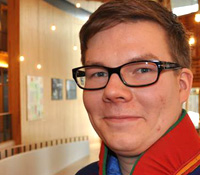
Ande Trosten
I am a 24 year old indigenous sami born in the high north in the middle of the Arctic in Northern Scandinavia in a village called Deatnu. Raised with close ties to nature, traditional knowledge, and respect for nature.
I grew up with fishing, hunting and living of the gifts nature gave us combined with modern lifestyle.
During the years I have been fortunate to participate in the sami society working with young indegnous people from the arctic In 2010 I worked on a project funded by the norwegian government called ”Sami Pathfinder” project were the aim is to let young sami people visit Norwegian schools trying to remove prejudices and stereotypes. I have also lived and worked as a volunteer for a year in Hannover Germany at an environmental office. There one of the main tasks was to inform and educate about problems and difficulties that are happening in the Arctic region today.
Today Im one of the Sami Language ambassadors trying to encourage young people to start using their mother tounge and save it of the UNESCOS list over endagered languages in the world today.
When Im not working with politics, own projects and work. Then I spend time on our local youth association. A youth association that works on preserving sami language and removing prejudices towards sami people in my home town.
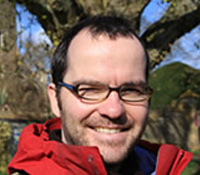
Sebastian Unger
Sebastian is Scientific Coordinator of the research cluster Global Contract for Sustainability at the IASS. In addition he is leading the institute’s Ocean Governance Group. His current research focuses on sustainability governance. He has a background in international environmental policy, serving from 2007 to 2011 as Deputy-Secretary of the OSPAR Commission for the Protection of the Marine Environment of the North-East Atlantic in London. Before joining OSPAR, Sebastian worked from 2004-2007 in the Federal Foreign Office, acting as Desk Officer for Maritime Policy. After graduation in 2003 he was awarded with a one-year Fellowship in International Affairs from the Robert Bosch Foundation and the German National Academic Foundation to work with the European Commission and International Maritime Organization. Sebastian studied biology and political science at Greifswald University, Germany and the University Centre on Svalbard, Norway. As part of his studies he stayed one year on the Arctic Svalbard archipelago (Spitsbergen). Sebastian is member of the World Commission on Protected Areas of the IUCN.
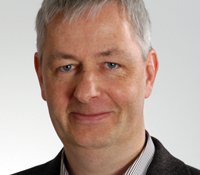
Dirk Wagner
Born in 1963. 1998 PhD in soil microbiology at the University of Hamburg. 2002-2012 Development and management of the working group “Geomicrobiology in Periglacial Regions” at the Alfred Wegener Institute. 2007 Habilitation at the Institute of Biochemistry and Biology, University of Potsdam. Since 2012 Head of the Section Geomicrobiology at the Helmholtz Centre Potsdam, GFZ German Research Centre and Professor of Geomicrobiology, University of Potsdam, Institute for Earth and Environmental Sciences.
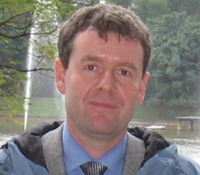
Jens Wickert
Jens Wickert studied physics at the Technical University Dresden. He obtained his doctor’s degree from the Karl-Franzens-University Graz in geophysics/meteorology. Currently he is deputy head of the GFZ section GPS/Galileo Earth Observation and responsible for the GFZ contribution to the Helmholtz research programme “Atmosphere and Climate”. He is actively involved in several satellite missions for Earth observation and Author/Co-author of numerous articles on GNSS remote sensing in leading journals.
